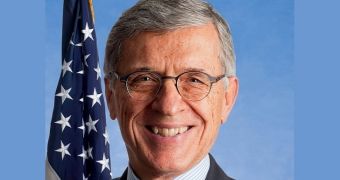Discussions about net neutrality have intensified greatly over the past few months and rightfully so. In the United States, the entire concept is being threatened, while in Europe lawmakers have adopted a new set of rules to make sure that abuse doesn’t happen.
The threat in the United States is so big that the entire world is talking about it and how the financial interests of some, more specifically the Internet service providers, seems to be more important than the millions upon millions of users who are already suffering through lousy Internet speeds. After all, the United States isn’t even in the top 30 countries with the speediest Internet connection, as a recent study by Ookla Speedtest revealed.
Yesterday, Tom Wheeler, the chairman of the Federal Communications Commission (FCC) announced that they had received over 647,000 comments on the net neutrality topic so far, with the window open for people to leave even more comments until Tuesday, July 15.
We’ve received about 647k #netneutrality comments so far. Keep your input coming -- 1st round of comments wraps up July 15.
— Tom Wheeler (@TomWheelerFCC) July 11, 2014This is a great example of mobilization in a critical situation when the Internet is being threatened by the companies who want to make an extra buck off of content providers and companies big enough to generate a lot of traffic, such as Netflix, or YouTube or whichever company will rise next to have a big impact on the world.
What the service providers want is to be able to ask these companies to give them money to gain access to an imaginary fast lane that doesn’t even exist. Since the ISPs are already complaining that they don’t have the necessary infrastructure to provide higher speeds, the “fast lane” simply means that the majority of Internet traffic will be slowed down while the traffic coming from a select few will use the actual bandwidth.
Plus, it is quite likely that the ISP will actually have to stop throttling with the speeds for those particular few companies to allow this, like it has been doing with Netflix, for instance, as data has shown.
What the ISPs want isn’t to help these companies with deep pockets to give their users a higher quality service, but rather to get money from two sources – the content creators and the clients – while offering the exact same lousy service.
The United States Supreme Court said that the FCC has no legal power to tell the ISPs they cannot play with people’s service, that they cannot sabotage certain companies just so they’d agree to pay for better connection.
So the FCC thought that if it gets to control the process, to impose some rules and to give its consent on any deal that is made, then things may still work out. Tom Wheeler, an ex lobbyist for the very same industry that he’s been asked to oversee, said that this was the best option, despite repeated complaints from users, the media, activists and even Internet companies such as Google, Microsoft, Yahoo and more.
Instead, the industry and the 647,000 people who left their two cents on FCC’s site, alongside everyone else, are telling the FCC and Tom Wheeler to take the shortcut, to choose the way that will make it easier for everyone and avoid abuse from these money-hungry service providers – to reclassify Internet providers as common carriers, to recognize that the Internet access has become a mere utility.
This would immediately give the FCC the power it needs to impose net neutrality rules and save the agency all the headaches that would come with going forward with the current plan that Wheeler has put up to discussion two months ago.
There’s still time until Tuesday to speak your mind on the net neutrality issue, but it should be clear by now how the people stand, how the tech companies, advocates and the world stand on the topic.

 14 DAY TRIAL //
14 DAY TRIAL //